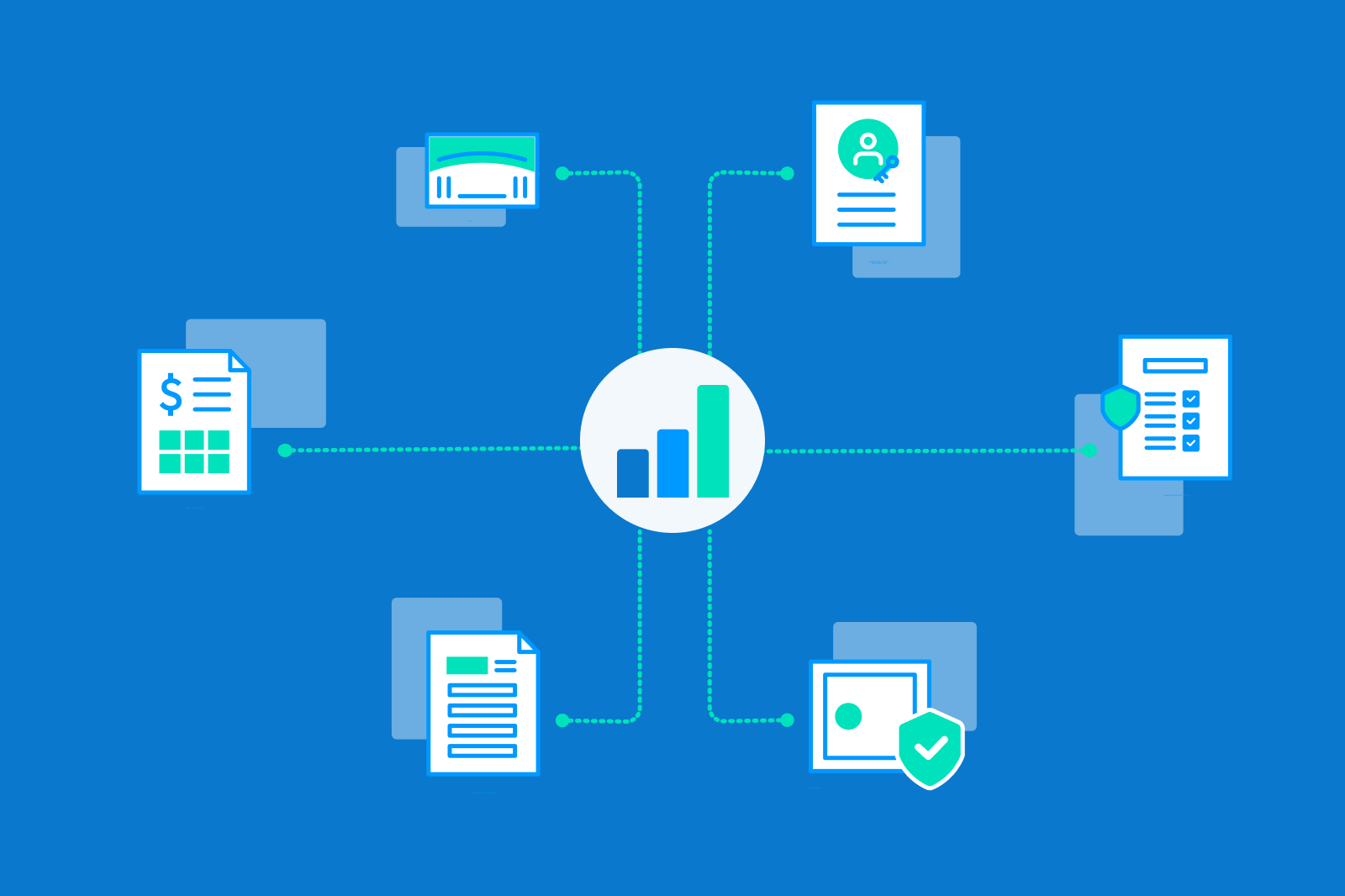A business credit report assesses your company’s ability to repay a loan
Your business credit report includes details about your business’s financial history and offers insight into your company’s current creditworthiness.
When applying for financing from a bank or other financial institution, they’ll first request a copy of your business credit report.
There are many different business credit reports, and each has its purpose and target audience. A commercial credit report is the most common type you need as a business owner. Here’s what you need to know about this type of report, where to get one, and how it can help you in your quest for financing as an entrepreneur.
What is a business credit report?
A business credit report is a tool to view your business credit history information. It differs from a personal credit report and does not include any personal information.
The business credit report contains your business’s credit history, which can be accessed through Experian, Dun & Bradstreet, and Equifax. This report is essential for small businesses as it helps them view their financial standing.
The business credit report includes information such as the age of the company, its payment history, and its debt-to-income ratio. These are all considered when determining its business credit score.
It also includes any public records that could impact the company’s reputation or ability to obtain loans in the future. With this information, small businesses can make informed decisions about managing their finances and understand how lenders view their company.
How is a business credit report different from a personal credit report?
A business credit report is different from a personal credit report. A business credit report determines a small business’s financial health and assesses its ability to repay debt.
It is typically generated by Equifax, Experian, or Dun & Bradstreet, and it may include information such as accounts payable, accounts receivable, payment history, and more.
On the other hand, personal credit reports are based on consumer credit reports that contain information about an individual’s debts and payment history. Personal credit reports are available from Equifax, Experian, and TransUnion.
What’s on a small business credit report?
A small business credit report is a comprehensive overview of a business’s credit profile. This report typically includes information such as:
- The company’s name
- Address
- Contact details
- Payment history
- Other financial data
The information in a small business credit report differs from a personal credit report; it does not include personal credit scores or personal financial information. Instead, it focuses solely on the business’s financial history.
The report may also include a business credit score depending on the credit bureau used to generate the small business credit report. The lender can use this to evaluate the risk associated with lending to that particular company.
Overall, a small business credit report provides lenders with an important source of information for assessing a potential customer’s ability to repay their debts.
How is a business credit score calculated?
The most critical factor in calculating a business credit score is the measurement of payment trends over time, with higher scores indicating better payment habits. Other factors used for credit scoring include:
- The size of the business.
- Length of time in operation.
- Type of business.
- Amount of debt.
These combined components determine a company’s overall financial health, reflected in its business credit score.
How can I check my business credit report?
To check your business credit report and score, you will need to contact one of the reporting agencies and request a copy of your credit report. From there, you can review it for any discrepancies or inaccuracies and take steps to improve it if needed.
Businesses can access their company’s financial information to make informed decisions. They can also take advantage of free advice on developing strategies to help them build up their credit score and grow their business. With all these tools at your disposal, checking your business credit report is essential to maintaining good financial health.
How to read your business credit report

To read your business credit report, first obtain it from a credit bureau. Once you have the report, review it carefully to see what it shows about your business’s credit score.
Pay attention to any negative items listed on the report, as they could impact your ability to receive financing. Ensure all information is accurate and up-to-date. This gives lenders an accurate picture of how well you manage your finances when considering offering you a loan or line of credit.
How private are business credit reports?
Business credit reports are not as private as personal credit scores or other financial information. They are generally accessible to the public, meaning anyone with an internet connection can access a business’s credit score. This is because lenders and other businesses may need to check the creditworthiness of a potential customer or partner before doing business with them.
Additionally, most business credit scores are updated periodically, meaning that they do not reflect daily changes in the company’s financial position. Therefore, businesses need to be aware of their current credit score and manage their finances responsibly to maintain a good credit rating.
Can I check another business’s credit score?
Yes, you can check another business’s credit score. This is especially useful for small business owners who want to establish a business relationship with another company. It’s important to know the creditworthiness of another business to determine if they are financially sound and able to fulfill its obligations.
Dun & Bradstreet is a popular option that provides free credit reports to review a company’s financial history. You may also find a free credit report on the website of one of the major credit reporting agencies, such as Experian or Equifax.
In addition, several online websites offer additional services such as checking trade references, searching public records, and more. With this information, you can make an informed decision about whether or not to do business with them.
What is a good business credit score?
A score of 70 or above indicates that a business has a good credit standing with lenders. Businesses should strive for higher scores to secure better loan terms and to demonstrate their trustworthiness to potential partners.
Why is my business credit score important?
Your business credit score is vital for lenders when deciding whether to work with your business. It can affect your ability to secure a small business loan, line of credit, or other financing opportunities from banks and lenders. Your business credit score reflects how well you manage your business finances and can determine whether you will be approved for certain types of financing.
A good business credit score can show lenders that you are responsible with money and make them more likely to approve your application. A bad business credit score may result in you being denied funding or receiving worse terms than what would be available to someone with a higher score. For this reason, staying on top of your business credit score is crucial to take advantage of the best financial opportunities available.
How do you build business credit with bad personal credit?
Building business credit with bad personal credit or no credit can be done with effort and intelligent strategies. The most important step to separate your personal and business credit is to open a business bank account.
This ensures that all business-related transactions are tracked separately. You should also apply for a business credit card in your company’s name. It is critical to pay it on time every month, as this will help you build a positive payment history.
Establish relationships with vendors who report to major business credit bureaus such as Experian or Equifax. This will help you build your business’s credit score over time. Finally, stay organized and keep track of your payments and records. This will give lenders more confidence when considering you for loans or other forms of financing.
How much does a business credit report cost?
The cost of a business credit report varies depending on the type of information requested and the complexity of the report. Generally, prices range from $30 to $100 per report. Prices may also vary based on the business size or if you need multiple reports for different businesses.
Keep your business’s information up to date with Markaaz and get your small business credit and free business risk scores on the Dashboard, when you sign up.
Keeping all of your business’s records and contact details up to date is pivotal, whether you need funding or to meet new clients or vendors. Claim your business listing in our Directory, update your business information and access the contact information for millions of other businesses.
Create your account to get started today.




